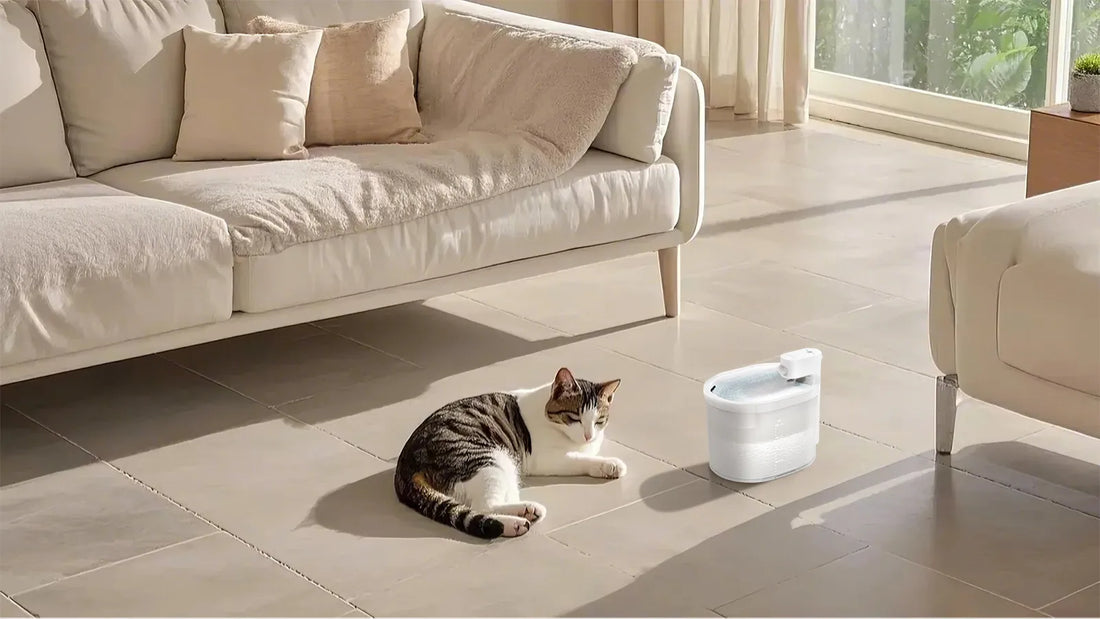If you've ever walked into your home to find your cat sitting in the litter box, you might have been puzzled or even concerned. While it might seem like an odd behavior, there are several reasons why your feline friend might choose to spend time in their litter box. Understanding these reasons can help you address any underlying issues and ensure your cat's well-being.
Comfort and Security
One of the most common reasons cats sit in their litter box is because it provides them with a sense of comfort and security. Cats are creatures of habit and often seek out familiar spaces where they feel safe. The litter box, with its enclosed space and familiar scent, can be a comforting retreat for your cat, especially if they are feeling stressed or anxious.
Medical Issues
Another reason your cat might be sitting in the litter box is due to medical issues. Cats that are experiencing urinary tract infections, constipation, or other health problems may spend more time in the litter box as they try to relieve their discomfort. If you notice your cat spending an unusual amount of time in the litter box, it's important to consult with a veterinarian to rule out any potential health concerns.
Stress and Anxiety
Stress and anxiety can also lead to your cat sitting in the litter box. Changes in the household, such as moving to a new home, the arrival of a new pet, or even changes in your daily routine, can cause your cat to feel anxious. The litter box can become a safe haven where your cat retreats to cope with their stress. Providing a calm and stable environment, along with plenty of hiding spots and enrichment, can help alleviate your cat's anxiety.
Territorial Behavior
Cats are territorial animals, and sitting in the litter box can be a way for them to mark their territory. If you have multiple cats in your household, one cat might sit in the litter box to assert dominance or to prevent other cats from using it. Ensuring that each cat has their own litter box, placed in different locations, can help reduce territorial disputes and encourage harmonious living.
Litter Box Preferences
Your cat's litter box preferences can also play a role in why they might sit in it. Cats can be particular about the type of litter, the size of the box, and even the location of the litter box. If your cat finds the litter box comfortable and to their liking, they might choose to spend time there. Experimenting with different types of litter and litter box designs can help you find the perfect setup that meets your cat's needs.
Attention-Seeking Behavior
Sometimes, cats sit in the litter box as a way to seek attention. If your cat has learned that sitting in the litter box gets a reaction from you, they might continue the behavior to gain your attention. Providing your cat with plenty of playtime, affection, and mental stimulation can help reduce attention-seeking behaviors and ensure they feel loved and cared for.
Environmental Factors
Environmental factors, such as the temperature and humidity in your home, can also influence your cat's behavior. If your cat finds the litter box area to be cooler or more comfortable than other parts of the house, they might choose to spend time there. Ensuring that your home is at a comfortable temperature and providing your cat with cozy resting spots can help encourage them to spend time in more appropriate areas.
Age-Related Changes
As cats age, they may experience changes in their behavior and habits. Older cats might sit in the litter box more frequently due to mobility issues, cognitive decline, or other age-related health concerns. Providing your senior cat with easy access to the litter box, along with regular veterinary check-ups, can help manage these changes and ensure their comfort.
How to Address the Behavior
If your cat is sitting in the litter box, it's important to address the behavior to ensure their health and well-being. Start by observing your cat's behavior and noting any changes in their routine or environment. Consult with a veterinarian to rule out any medical issues, and make adjustments to the litter box setup and household environment as needed. Providing your cat with plenty of enrichment, affection, and a stable routine can help reduce stress and encourage more appropriate behaviors.
Understanding why your cat sits in the litter box is the first step in addressing the behavior and ensuring their happiness. By identifying the underlying cause and making the necessary adjustments, you can help your feline friend feel more comfortable and secure in their environment. So, the next time you find your cat sitting in the litter box, take a moment to consider the possible reasons and take action to support their well-being.














